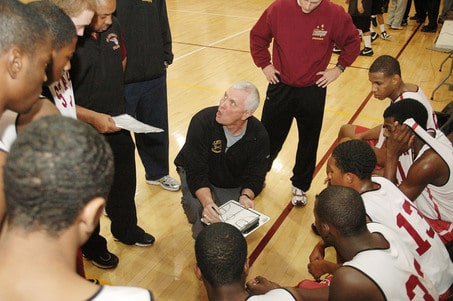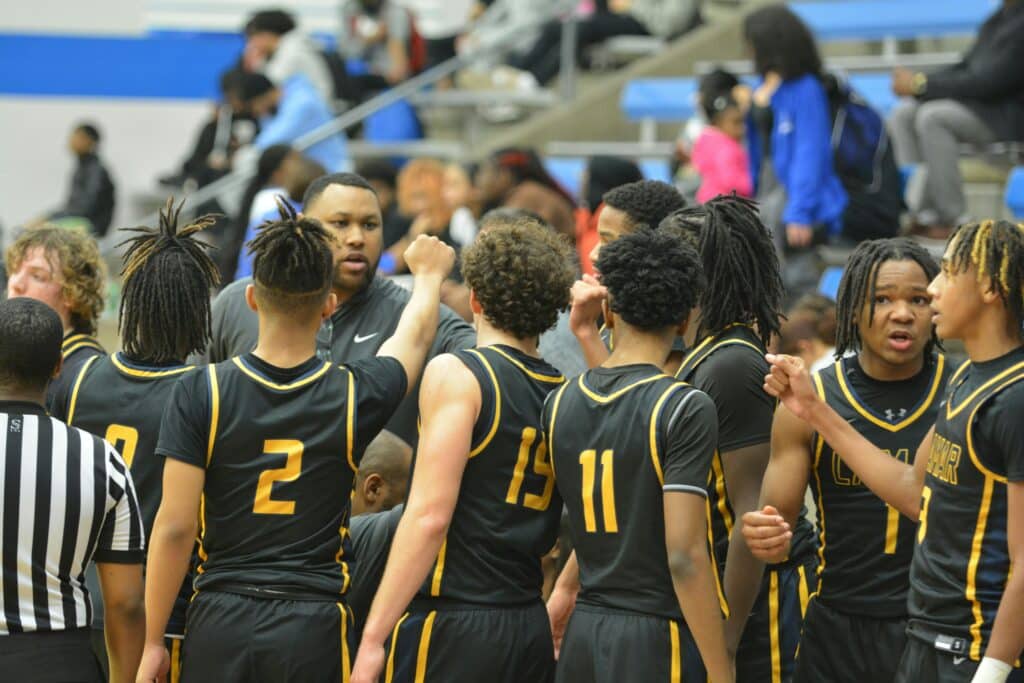
Strategies for Coaching Diverse Player Skill Levels: Making Sure Every Player Gets Coaching
Coaching a basketball team with diverse skill levels can be both challenging and highly rewarding. Each player brings unique strengths and weaknesses, and effectively managing this diversity requires tailored strategies to maximize individual and team performance.
By adopting an inclusive coaching approach, you can foster an environment that promotes growth, teamwork, and overall success.

1. Assessing Player Skill Levels
Before developing a coaching strategy, it’s essential to assess each player’s skill level to understand their capabilities and areas for improvement.
Skill Evaluation
Conduct initial assessments through various methods, including drills, scrimmages, and individual evaluations. Observing players in action during practices and games will help you gauge their proficiency in shooting, dribbling, passing, and defense. Use standardized drills that allow you to quantify their skills objectively. For instance, you might measure shooting accuracy from different distances or assess ball-handling ability through specific agility drills.
Player Self-Assessment
Encourage players to self-evaluate their skills and set personal goals. Providing them with a self-assessment tool can guide this process. This exercise not only fosters self-awareness but also gives you insight into their self-perception. Players may identify areas they feel confident in or aspects they wish to improve, which can inform your coaching approach.

2. Designing Differentiated Drills
To cater to diverse skill levels, create differentiated drills that challenge players appropriately while promoting growth.
Basic to Advanced Drills
Develop a range of drills that span from fundamental to advanced levels. For example, simple dribbling drills, such as stationary ball-handling exercises, can be beneficial for beginners. In contrast, advanced players might engage in complex scenarios that include decision-making under pressure, such as dribbling through defenders or executing quick changes of direction.
Skill Progressions
Implement progressions in drills to ensure that all players are engaged and challenged at their level. Start with basic techniques and gradually introduce more complex elements as players improve. For instance, you might begin with a fundamental shooting drill, and once players demonstrate proficiency, add variables such as defenders or time constraints to increase the challenge. This approach not only accommodates varying skill levels but also promotes a sense of accomplishment as players progress.
3. Grouping Players Strategically
Organizing players into groups based on their skill levels can facilitate focused training and ensure effective practice.
Skill-Based Groups
Divide players into skill-based groups during practice. This allows you to provide targeted instruction and ensure that each group is working on skills appropriate for their level. For example, you might have a group focused on basic shooting mechanics while another works on advanced offensive plays. This structure enables you to maximize the effectiveness of your coaching by addressing specific needs without overwhelming less experienced players.
Mixed Groups
Occasionally mix players of different skill levels to foster peer learning and teamwork. More experienced players can mentor beginners, which can be beneficial for both groups. Pairing advanced players with novices creates an environment of collaboration and support. The advanced players reinforce their own understanding by teaching others, while beginners gain insights and encouragement from their peers. Additionally, this strategy can enhance team chemistry and cohesion.

4. Providing Personalized Feedback
Offering individualized feedback is crucial to help players understand their strengths and areas for improvement.
One-on-One Sessions
Schedule individual meetings or sessions to provide tailored feedback and address specific needs. During these sessions, discuss performance, set goals, and create action plans for improvement. This personalized attention can motivate players, as they feel valued and recognized. Make sure to frame the conversation positively, highlighting strengths before discussing areas for growth.
Constructive Criticism
Utilize constructive criticism to guide players without discouraging them. Focus on actionable advice that they can implement in future practices or games. For example, instead of saying, “You need to shoot better,” try, “Let’s work on your follow-through to improve your shooting accuracy.” Additionally, celebrate progress and small victories to maintain motivation and encourage a growth mindset.
5. Setting Realistic Goals
Establishing clear, achievable goals for players based on their skill levels is vital for fostering improvement and confidence.
Short-Term Goals
Set short-term goals that focus on immediate improvements. For example, a goal for a beginner might be to improve shooting accuracy from a specific range during practice sessions. For an advanced player, a goal might be to master a new move or improve decision-making in fast-break situations. These goals should be specific and measurable, allowing players to track their progress.
Long-Term Goals
Develop long-term goals that align with each player’s development trajectory. Ensure that these goals are challenging yet attainable, encouraging players to push their limits while providing a realistic path for growth. Long-term goals could include becoming a starter, earning a scholarship, or improving overall performance metrics by the end of the season. Revisit these goals regularly to adjust them based on progress and provide continued motivation.

6. Encourage a Growth Mindset
Fostering a growth mindset among your players is crucial in a diverse skill environment.
Promote Resilience
Teach players that improvement comes from effort and persistence. Encourage them to embrace challenges, learn from mistakes, and view setbacks as opportunities for growth. Share stories of professional athletes who have faced adversity and persevered, illustrating that skill development is a journey that requires time and dedication.
Celebrate Progress
Recognize and celebrate individual and team progress, no matter how small. Highlight improvements in practice or during games, reinforcing the idea that hard work leads to results. This recognition can boost confidence and motivate players to continue striving for excellence.

7. Engage Parents and Guardians
Involving parents and guardians in the coaching process can enhance support for players and foster a positive environment.
Regular Communication
Keep parents informed about team progress, individual player goals, and areas for improvement. Provide updates through newsletters, team meetings, or online platforms. This transparency helps parents understand their role in supporting their children’s development and encourages them to reinforce positive behaviors at home.
Workshops and Clinics
Consider hosting workshops or clinics for parents to educate them about the game and your coaching philosophy. This engagement can lead to increased support and understanding of the challenges players face at different skill levels. When parents are involved, players often feel more supported both on and off the court.
Strategies for Coaching Diverse Player Skill Levels Conclusion:
Coaching a basketball team with diverse player skill levels requires intentional strategies and a commitment to fostering individual growth. By assessing player skills, designing differentiated drills, providing personalized feedback, and encouraging a growth mindset, you can create an inclusive environment that promotes development and teamwork.
As a coach, your ability to adapt and cater to the unique needs of each player will not only enhance their skills but also contribute to a more cohesive and successful team. Embrace the challenge of coaching diverse skill levels, and watch as your players thrive both individually and collectively.



